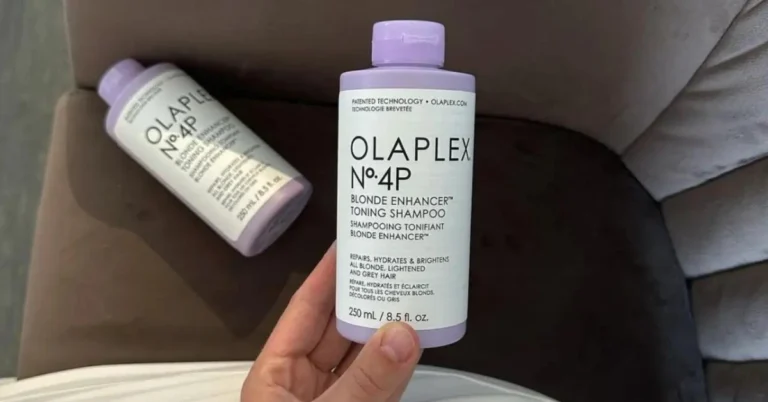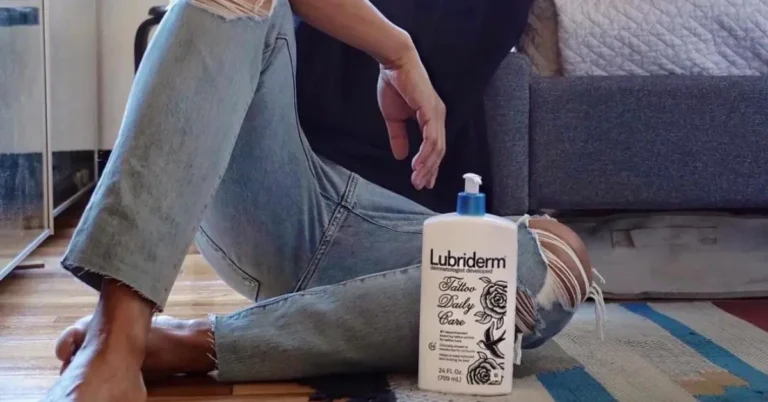Can Hyaluronic Acid Help with Acne Scars? Acne scars can be a significant source of embarrassment and can diminish one’s self-confidence. But, are you aware that there could be a potential remedy to lessen the visibility of these scars?
Hyaluronic acid has been found to be an effective and safe solution for treating moderate-to-severe atrophic acne scars. With the ability to speed up wound healing and improve skin texture, this article will explore the benefits of using hyaluronic acid for acne scars and how it works.
Table of Contents
Does Hyaluronic Acid Help Acne Scars?
Yes, hyaluronic acid can definitely help with acne scars. In fact, it has been found to be an effective and safe option for treating moderate-to-severe atrophic acne scars.
You see, hyaluronic acid is a naturally occurring substance in our bodies that helps to maintain skin hydration and elasticity. When it’s injected into the skin, it can help to hydrate and plump up the affected area, reducing the appearance of scars.
And here’s the best part: when combined with CO2 laser resurfacing, hyaluronic acid can enhance the effects of the laser treatment and speed up the healing process. It’s like a one-two punch for acne scars!
So if you’re someone who’s struggling with the appearance of acne scars, don’t worry! Hyaluronic acid may be just what you need to improve your skin’s appearance and boost your confidence. It’s definitely worth considering!
My Own Experiences After 30 Days
I used Hyaluronic Acid every day morning and night for 30 days and this is what happened:
My skin became noticeably more elastic and also more resistant to pimples and also acne scars. Because my skin got not only more moisture but also more elasticity and resistance.
With me, however, it is especially so that I often have dry spots on some parts of the face, which can then quickly lead to skin irritations such as inflammatory pimples. Therefore, moisture helps me strongly against new pimples, but also against acne scars, as the skin becomes more even overall.
However, I want to be honest with you that I always take Hyaluronic Acid together with Niacinamide, as I have made the experience that the combination of the two ingredients is a real wonder pill, especially for pimples, pimple marks, and acne scars.
So feel free to try it out and also feel free to report in the comments below this article what experience you have had with the two ingredients for acne scars. I look forward to your comments guys! 🙂
Effectiveness and Safety of Hyaluronic Acid for Treating Acne Scars

Hyaluronic acid is a naturally occurring substance in the body that plays a key role in maintaining skin hydration and elasticity. In recent years, hyaluronic acid has been found to be effective and safe for treating moderate-to-severe atrophic acne scars.
Studies have shown that injections of a low-viscosity, non-animal stabilized hyaluronic acid (NASHA) dermal filler into the mid-to-superficial dermis can provide a useful new treatment option for acne scars. Additionally, combining hyaluronic acid with CO2 laser resurfacing has been shown to speed up wound healing and reduce the appearance of acne scars.
The use of hyaluronic acid for acne scars treatment is non-invasive and has minimal side effects. It can provide a noticeable improvement in skin texture and appearance, leading to increased confidence and improved self-esteem.
Overall, the use of hyaluronic acid for treating acne scars is a safe and effective option for those seeking of you that want to improve the appearance of their skin, but who doesn’t want that, right?
How Hyaluronic Acid Works for Acne Scars
Acne scars can be treated with hyaluronic acid.
It works by increasing skin firmness, elasticity, and texture, as well as filtering out dead skin and keeping potential irritants and bacteria at bay. It is frequently used as a microdose injectable filler into the mid-to-superficial dermis, or as a topical serum in conjunction with CO2 laser resurfacing.
Hyaluronic Acid Benefits for Skin

Hydration, reducing the visibility of fine lines and wrinkles, retaining moisture to create a plumping effect, increasing skin elasticity, and treating eczema and facial redness are all benefits of hyaluronic acid.
How to Use Hyaluronic Acid for Skin
To use hyaluronic acid on your skin, first, cleanse it with a gentle cleanser, then apply a few drops of hyaluronic acid serum to a damp face and rub it in. Hyaluronic acid functions as a humectant, assisting the skin in retaining water and plumping up. It also helps skin stretch and flex, reduces wrinkles and lines, and is topically safe to use.-
Which acid is best for acne scars?
Glycolic acid and retinoic acid are both effective acne scar treatments. When applied topically, salicylic acid clears pores, reduces swelling and redness, and exfoliates the skin, making it a popular over-the-counter acne treatment. Alpha hydroxy acids have also been shown to remove impurities and lighten acne scars. Salicylic acid is frequently used in acne treatments because it helps to prevent blemishes.
Does hyaluronic acid fade dark spots?
When used in conjunction with brighteners such as vitamin C serum, hyaluronic acid can help reduce age spots and pigmentation issues, but it cannot do so on its own. It has no effect on hyperpigmented spots.
What heals acne scars the fastest?
Advanced technology treatments, such as laser and light treatments, are generally the most effective ways to treat moderate to severe acne scars and heal faster than other treatments. Other acne scar home remedies include chemical exfoliation with pre-soaked pads and using aloe vera combined with manuka honey to promote scar-free wound healing.
What completely gets rid of acne scars?
Dermabrasion is a procedure that can be used to completely remove surface scars and reduce the visibility of deeper acne scars. Another option is laser resurfacing, which removes the top layer of skin while tightening the middle layer. Chemical peels, microneedling, punch excision, subcision, fillers, and dermabrasion are some of the other treatments available. Home remedies such as black seed oil, rosehip oil, and honey may also help reduce postsurgical scar discoloration.
Do all acne scars fade?
Most acne scars do not fade on their own and may take up to a year to fade. However, there are treatments available to reduce the appearance and visibility of acne scars.
Can you ever heal acne scars?
Acne scars cannot be removed on their own and must be treated in order to achieve even-toned skin with a smooth texture. Chemical peels, microdermabrasion, fillers, and other in-office dermatological procedures may be used depending on the severity of the scars.
What acne scars are hardest to treat?
The most difficult acne scars to treat are icepick acne scars. These scars are narrow, V-shaped, and penetrate deep into the skin, resembling small oval holes. Icepick scar treatments frequently involve the breakdown of collagen in order for the scar to heal and may include injections of corticosteroids, 5-FU, or interferon. Because of their raised nature, keloid scars can be difficult to treat.
Is Vitamin C good for acne scars?
Vitamin C can help reduce acne-related inflammation and redness, as well as increase collagen synthesis, which is responsible for rebuilding healthy skin. Using a vitamin C serum in the morning and at night can help fade acne scars.
How do you fade acne scars naturally?
Lavender and olive oil, black seed oil, rosehip seed oil, honey, aloe vera, coconut oil, baking soda, apple cider vinegar, sunflower seed oil, avocado oil, almond oil, and olive oil are some natural remedies that may help fade acne scars.
If you liked this blog article about the question: Does Hyaluronic Acid Help Acne Scars, don’t forget to leave us a comment down below to tell us about your experience with Hyaluronic Acid and your acne scars.





